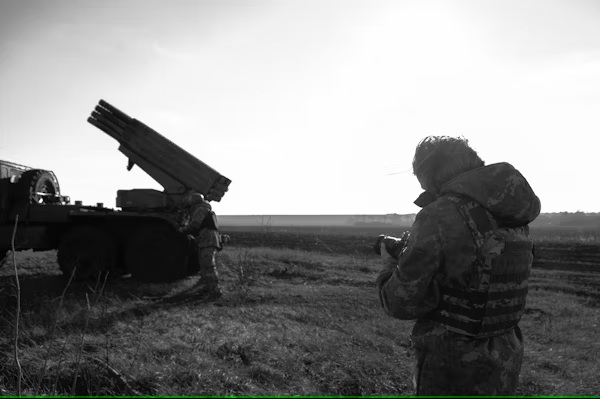
By Newswriters Editorial Team
The media coverage of the conflict in Ukraine since the full-scale invasion in February 2022 has been a defining global narrative, yet one marked by significant disparities. In the West, the coverage has been extensive, immersive, and largely unified.
Western news organizations have dedicated immense resources, with journalists often reporting from the front lines, providing real-time updates, and producing deep analytical and human-interest stories. This has created a powerful, empathetic connection with the Ukrainian cause, framing the conflict as a clear-cut battle between a sovereign democracy and an aggressive authoritarian neighbour. The narrative consistently centres Ukrainian voices, from President Zelenskyy to civilian victims, reinforcing themes of resilience and the defence of shared democratic values.
However, this stands in stark contrast to the media landscape in other parts of the world. In many Global South nations, coverage has been considerably more limited and often framed through a different lens. Media in countries like India, South Africa, and Brazil have frequently presented the conflict with more neutrality, focusing on its secondary impacts—such as global food and energy crises—rather than the military and political details. This perspective often reflects a historical non-alignment and a skepticism of Western geopolitical narratives, viewing the war as a regional power struggle rather than a global moral crusade.
Furthermore, within Russia and states aligned with its viewpoint, state-controlled media propagates a completely inverted narrative. Here, the coverage is dominated by the language of a “special military operation” to “denazify” Ukraine, portraying the Russian military as liberators and blaming the West for provoking the conflict. This creates a stark informational divide, where populations receive fundamentally different realities.
In conclusion, media coverage of Ukraine is not monolithic. It fractures along geopolitical lines, creating a two-tiered global awareness. While Western audiences are presented with a visceral, high-stakes drama of good versus evil, many others see a distant conflict with devastating ripple effects, and some are fed a narrative of justified military action. This disparity underscores that how the war is understood is deeply dependent on where one consumes the news.
Sources:
The New York Times
Report: “‘We Will Fight to the End’: In Ukraine’s South, a Costly Battle Rages.” This report from the Kherson region in 2022 includes direct interviews with Ukrainian soldiers and civilians under fire, detailing their determination and the human cost of the war.
Link: https://www.nytimes.com/2022/11/10/world/europe/ukraine-war-kherson-battle.html
The Guardian
Report: “‘We will not be silent’: Volodymyr Zelenskiy’s speech to UK parliament – full text.” This article published the full transcript of President Zelenskyy’s historic video address to the British Parliament, where he invoked Winston Churchill and solidified Western support.
Link: https://www.theguardian.com/world/2022/mar/08/we-will-not-be-silent-volodymyr-zelenskiys-speech-to-uk-parliament-full-text
BBC News
Report: “Ukrainian soldier tells Russian warship ‘go fuck yourself’ before officers die on island.” This report brought the story of the Snake Island defenders to a global audience, instantly turning it into a symbol of Ukrainian defiance.
Link: https://www.bbc.com/news/world-europe-60211629
Al Jazeera (Qatar-based, with a large Global South audience)
Report: “‘Worst food crisis in decades’: UN chief warns over Ukraine war effects.” This
vulnerable populations in Africa and the Middle East, quoting international officials.
Link: https://www.aljazeera.com/news/2022/5/14/worst-food-crisis-in-decades-un-chief-warns-over-ukraine-war-effects
The Hindu
Report: “Explained | The Ukraine crisis and its impact on India.” This article is characteristic of the neutral framing, calling it the “Ukraine crisis,” and focuses analytically on the impacts on India’s economy, diplomacy, and students, rather than the military narrative.
Link: https://www.thehindu.com/news/international/explained-the-ukraine-crisis-and-its-impact-on-india/article65106922.ece
Russia Today (RT)
Report: “Moscow launches military operation in Ukraine after Donbass appeal.” The opening line of this report states the operation’s aims are “to defend people who for eight years have been facing humiliation and genocide perpetrated by the Kyiv regime” and to pursue the “demilitarization and denazification of Ukraine.”
Link (archived): https://web.archive.org/web/20220224131614/https://www.rt.com/russia/551423-military-operation-donbass-ukraine/
TASS (Russian state news agency)
Report: “Bucha provocation aimed at derailing peace talks — Russian top diplomat.” This report directly quotes Foreign Minister Sergey Lavrov dismissing the evidence of civilian killings in Bucha as a “stage-managed anti-Russian provocation.”
Link: https://tass.com/politics/1432543
PHOTO: Vony Razom. Unsplash



